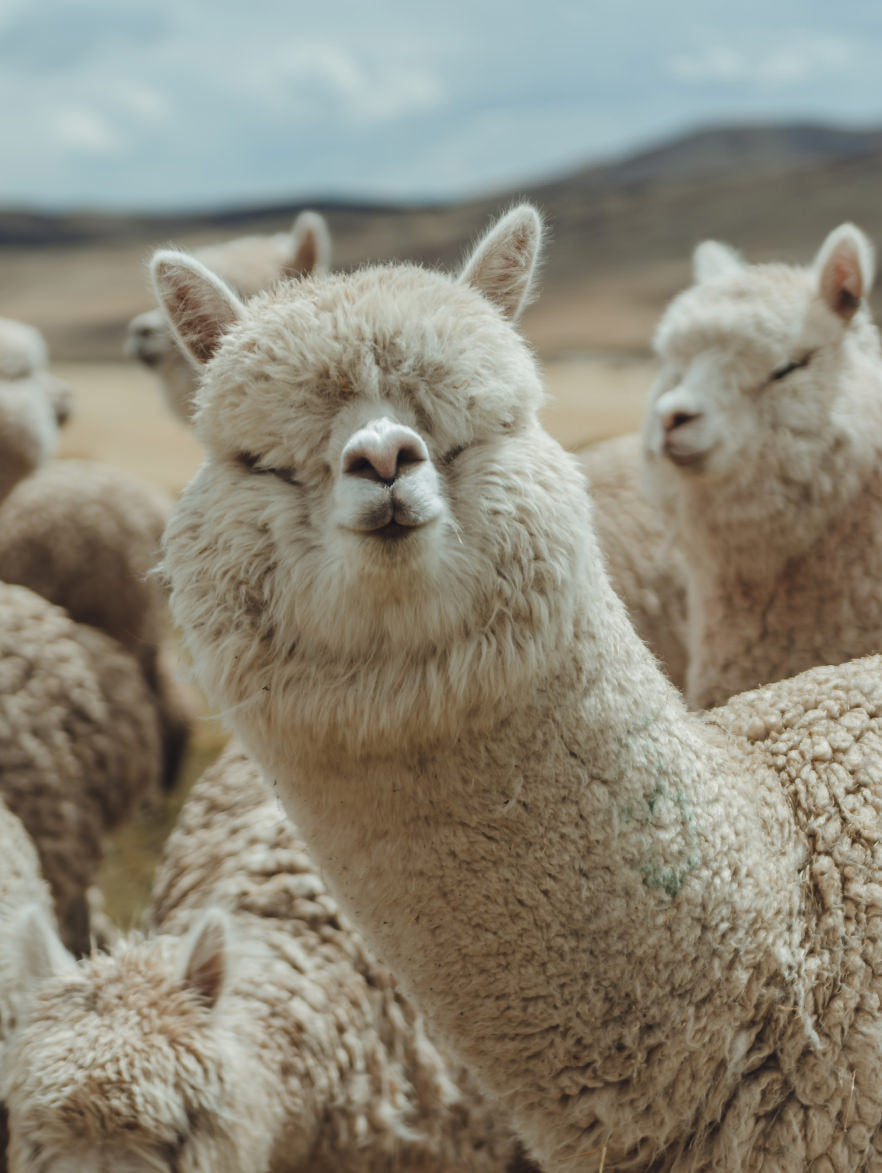



Wool has a long list of benefits that make it ideal whether you’re layering up for a day on the mountain or laying down miles on the trail. A fiber that’s held its own for thousands of years, we’ve washed, woven, and worn different types of wool, from cashmere to merino, without complaint. But just because wool is a timeless material, doesn’t mean we’re content with how far it’s come. Different animals yield different types of wool (of which there are dozens), and while each type imparts a unique set of characteristics, alpaca wool has garnered broader interest and support in recent years.
Lightweight, soft and incredibly versatile, alpaca wool comes from none other than—you guessed it—the alpaca, an animal native to South America with close ties to the camel. Like other types of wool, it’s something of a “miracle fiber,” though you’ve probably heard that cliché turn of phrase enough times to wonder if it’s actually true. So here’s what you need to know about alpaca wool, and why you’d be wise to place your bets on this budding fiber.




*A quick note: Before we can really get into the weeds (or wool), it’s worth noting that alpaca isn’t really wool at all. Instead, it’s a dry, hollow fiber that lacks lanolin, a waxy substance secreted by wool-bearing animals. While it features many of the same qualities as wool, it’s actually a bit different, but for the sake of clarity, we’ll refer to alpaca fibers and fleece as alpaca wool.

Alpaca Wool Is Naturally Insulating

Alpaca Wool is Perfect for Hot Weather
Alpaca Wool Is Strong And Long-Lasting
There’s a reason that wool blanket your grandparents gave you is still keeping you warm, and it’s not because they coddled it for decades. It’s because wool is naturally durable and long-lasting, and when it’s integrated into a blanket or garment, can last for generations. According to American Wool, alpaca fiber “can bend up to 20,000 times before breaking. This durability far surpasses other fibers, making wool tough to tear and resistant to abrasion.” But because different types of wool play host to different properties, it’s worth noting that alpaca wool is among the strongest of the different wools on the market, ranking higher than ultra soft cashmere as well as merino. That means you can wear it, wash it and repeat the process over and over again without ever wondering if your alpaca threads are in good shape. It’ll stand up to just about anything.




Alpaca Wool Is Naturally Antimicrobial And Odor-Resistant
Alpaca Wool Is Naturally Antimicrobial And Odor-Resistant To better understand how wool keeps bacteria and odors at bay, take a closer look at the fiber’s overlapping cellular structure that looks a bit like shingles on a roof. As dirt and moisture collects on the alpaca fiber, it naturally remains on the surface until it falls off, combating the growth of bacteria and organisms that produce unwanted odors. Additional research indicates that because alpaca wool doesn’t hold onto moisture, it’s less likely to facilitate the growth of bacteria. So while you may not pay close attention to the microscopic structure of your clothing, you’ll feel a little more at ease knowing the base layers you’ve been wearing for days still smell fresh at the après-ski festivities.

Alpaca Wool Is Sustainable




So What Does This All Mean?
We may be just a little biased here at Paka, but the results speak for themselves. The benefits of alpaca wool make it a reliable, resilient fiber that we’re incredibly proud to work with. From evenings around the house to early-morning runs to extended days of travel, our products are designed to amplify your everyday experiences. Give alpaca a try and find out where it can take you.
Paka Favourites

Join the herd.
We grant our community private access to new products and exclusive offers.









